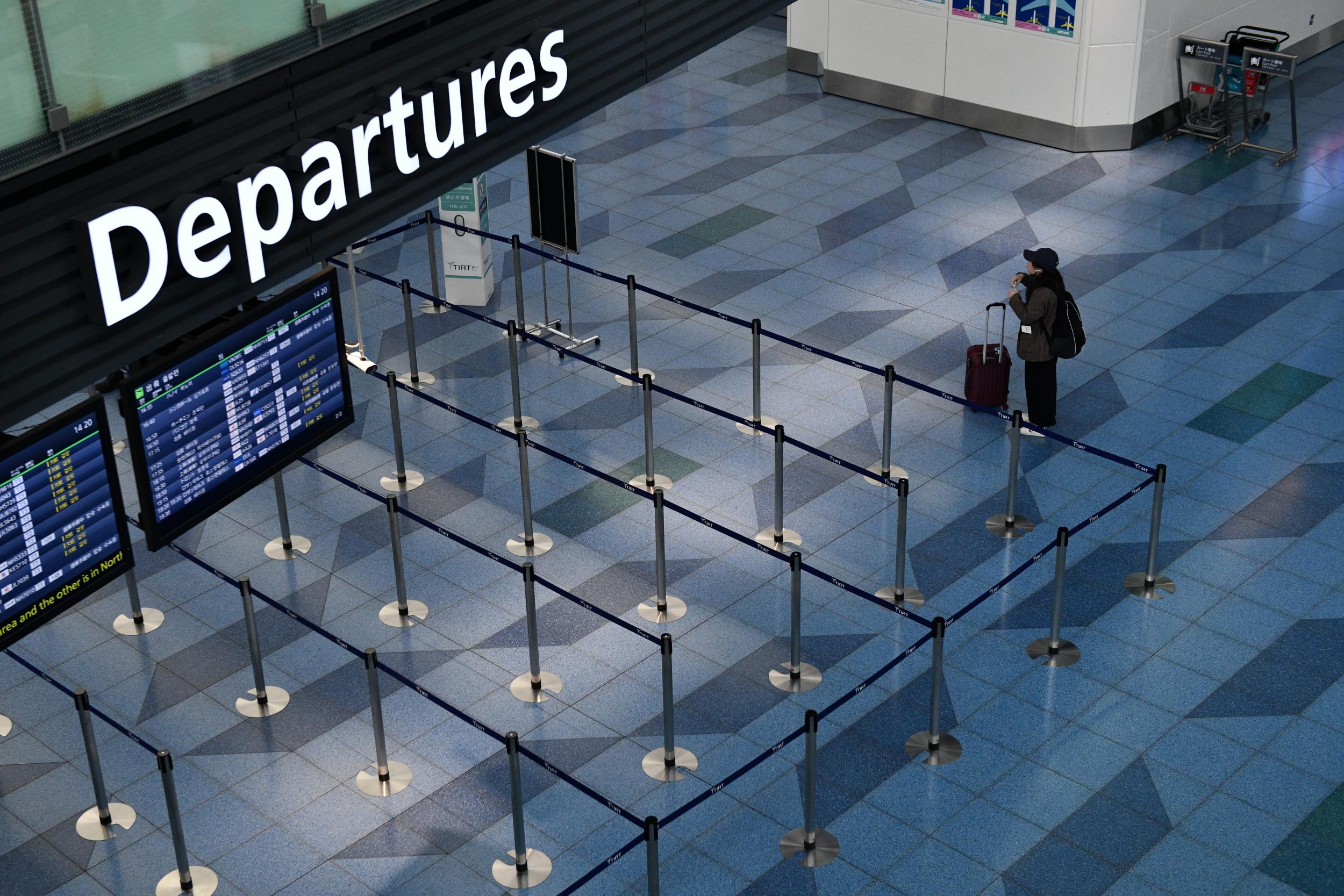Your support helps us to tell the story
From reproductive rights to climate change to Big Tech, The Independent is on the ground when the story is developing. Whether it's investigating the financials of Elon Musk's pro-Trump PAC or producing our latest documentary, 'The A Word', which shines a light on the American women fighting for reproductive rights, we know how important it is to parse out the facts from the messaging.
At such a critical moment in US history, we need reporters on the ground. Your donation allows us to keep sending journalists to speak to both sides of the story.
The Independent is trusted by Americans across the entire political spectrum. And unlike many other quality news outlets, we choose not to lock Americans out of our reporting and analysis with paywalls. We believe quality journalism should be available to everyone, paid for by those who can afford it.
Your support makes all the difference.Airlines, railway operators, and bus companies could be temporarily nationalised to ensure transport keeps running during the coronavirus pandemic, the transport secretary has suggested.
Grant Shapps told MPs that the measure could prevent firms from “going bust” during the Covid-19 outbreak.
The secretary of state told the Commons that in some cases the government’s response would involve “organisations being run by the public sector”.
Asked by Labour MP Stephen Doughty whether the government would have to bring some operators “into national ownership, perhaps for a temporary period”, Mr Shapps said that any public ownership would in “principle” be temporary.
“The principle should, as far as we can possibly make this work, be that people and individuals and companies are left in the same position when we come out of this,” he said.
“Although, I have to say, I feel we will be in a somewhat changed world, a somewhat changed environment on the other side of this, but nonetheless good organisations shouldn’t be going bust.
“It’ll be hugely challenging and we will require a lot of different responses and mechanisms in order to get there, including on occasion organisations being run by the public sector, which he’s already seen in the case of trains but for a completely different reason.”
Mr Shapps also said train timetables could be reduced during the crisis, telling MPs that “it makes no sense for us to be running empty trains as fewer people will be travelling” and that “in the short, medium-term, timetables may be altered in order to ensure we don’t effectively run ghost trains”.
In some countries such as Denmark and Belgium, the national railway company has added extra carriages to aid people practising “social distancing” on public transport – so they can sit further apart.

Asked by Labour MP Yvette Cooper whether a similar approach could be applied in the UK, Mr Shapps said that the need for extra space should be “taken into account” in the planning of services.
Shadow transport secretary Andy McDonald said: “With demand for travel down, there may be a temptation to run services at a different frequency to what’s specified in the franchise agreements.
“But I would ask the secretary of state, along with Ms Cooper, to consider that contagion may be reduced by fewer passengers on the same level of service.”
At the 2017 election Labour pledged to bring railway operations back into public ownership and expand the role of municipal, publicly-owned bus companies on a permanent basis. The Government recently brought the Northern franchise back into public ownership after its private operator withdrew.
It comes after the UK airlines industry asked for a multi-billion pound bailout, warning that the reduction in travel threatened its viability.

Join our commenting forum
Join thought-provoking conversations, follow other Independent readers and see their replies
Comments